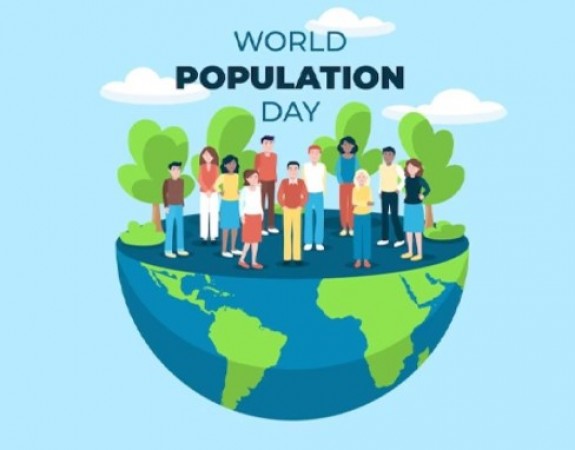
World Population Day is observed on July 11th every year to raise awareness about the pressing issues related to population growth and its impact on various aspects of human life. Established by the United Nations in 1989, this day provides an opportunity to reflect on the challenges posed by population expansion and to promote initiatives for sustainable development. With the world's population surpassing 7.9 billion people, this day serves as a reminder of the need for collective action to ensure a better future for all. It serves as a reminder to continuously work towards addressing these issues and improving the lives of everyone on the planet. The observance of World Population Day aims to promote understanding and encourage collective efforts in tackling the impacts of population growth.
History
The United Nations Development Programme’s Governing Council established World Population Day in 1989, inspired by the Day of Five Billion observed on July 11, 1987. In 1990, the United Nations General Assembly, through Resolution 45/216, decided to continue celebrating World Population Day to raise awareness about population issues and their interconnection with the environment and development.
The first World Population Day was observed on July 11, 1990, in more than 90 countries. Since then, numerous organizations, institutions, and United Nations Population Fund (UNFPA) country offices, in partnership with governments and civil society, have been marking this day to bring attention to population-related concerns.
Significance
World Population Day focuses on bringing attention to critical issues concerning the global population. It aims to raise awareness about various challenges such as gender inequality, economic crises, and poverty. This day serves as a reminder to actively strive for the betterment of people’s lives and drive positive transformations. The United Nations celebrates World Population Day with a vision of creating a future where everyone has equal opportunities and limitless potential. Moreover, it works towards building a sustainable world in line with the goals outlined in the 2030 Agenda for Sustainable Development.
Understanding the Global Population Challenge
The global population has witnessed exponential growth over the past few centuries. It took thousands of years for the world population to reach one billion, but the subsequent billion increments have occurred at an increasingly rapid pace. This rapid growth raises several challenges such as resource depletion, environmental degradation, overcrowding, poverty, and unequal access to healthcare and education.
Resource depletion is a significant concern as the increasing population places immense pressure on finite resources like water, energy, and food. The rising demand for these resources can lead to scarcity, price fluctuations, and geopolitical conflicts. Additionally, overexploitation of natural resources contributes to environmental degradation, loss of biodiversity, and climate change.
The strain on infrastructure and services caused by population growth often leads to overcrowding in urban areas. Overpopulated cities face challenges related to housing, transportation, sanitation, and public health, compromising the well-being and quality of life for many residents.
Addressing the Challenges for Sustainable Development (approx. 800 words)
To ensure a sustainable future, it is crucial to address the challenges posed by population growth through comprehensive and integrated strategies. The following areas require attention:
Education and Empowerment:
Education plays a vital role in empowering individuals, particularly women and girls, to make informed decisions regarding their reproductive health. Access to quality education promotes awareness, helps control population growth, and contributes to socioeconomic development.
Reproductive Health and Family Planning:
Ensuring universal access to reproductive healthcare and family planning services is essential. Family planning programs, along with comprehensive sexual education, can help individuals make informed decisions about family size, spacing of pregnancies, and maternal health, leading to healthier families and communities.
Gender Equality and Women's Empowerment:
Promoting gender equality and empowering women are key to achieving sustainable development. Women's rights, including access to education, healthcare, and economic opportunities, need to be safeguarded. Empowered women tend to have fewer children and can contribute significantly to social and economic progress.
World Population Day serves as a reminder of the challenges posed by population growth and the urgent need for collective action. By addressing these challenges through comprehensive strategies, we can pave the way for a sustainable future. Education, reproductive health, gender equality, sustainable resource management, urban planning, poverty alleviation, economic development, and climate change mitigation are key areas that require attention. Governments, civil society, and individuals must work together to promote sustainable development practices and ensure a better quality of life for current and future generations. On this World Population Day, let us commit ourselves to creating a world where population growth is balanced with the capacity of the planet to sustain and nurture all its inhabitants.
Celebrating World Population Day, July 11
Happy Birthday, Alok Nath: Remembering the Legacy of an Extraordinary Actor
Rajnath Singh: Celebrating the Visionary Politician on His Birthday